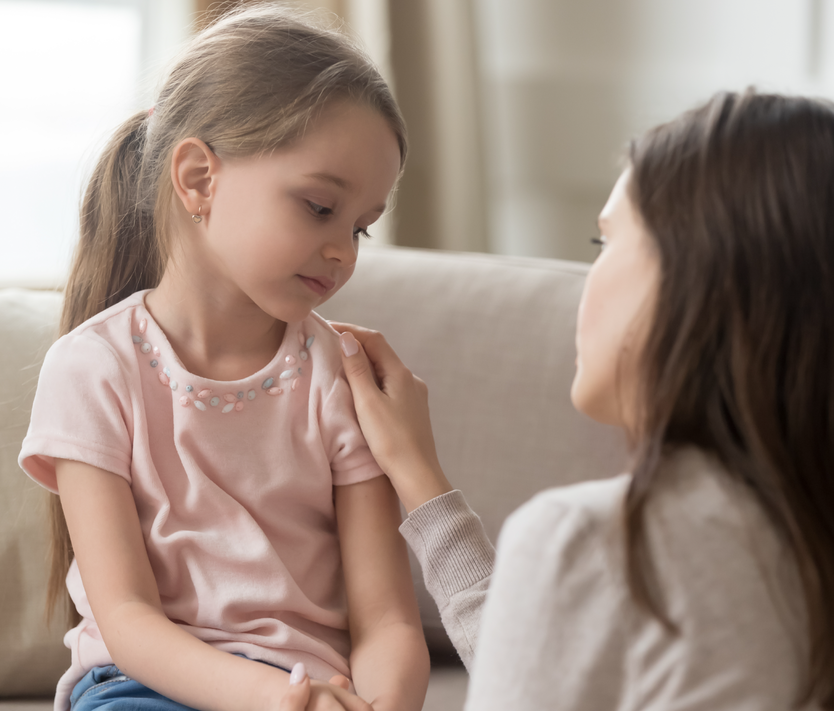Picture this: you’re sitting with your child, their innocent eyes wide with curiosity, as you try to find the right words to explain what’s happening.
It’s a scene that plays out in countless homes worldwide, filled with equal parts fear and determination.
So, where do you start? When is the right time to have this conversation? And how do you even begin to explain something as complex and scary as cancer to a young mind?
First things first, take a deep breath. You’ve got this.

Timing is everything.
You know your child best, so trust your instincts when they’re ready for this conversation.
It might be when they start asking questions about why they’re feeling unwell or when they notice changes in their body, when cancer changes their appearance.
Whenever it is, make sure you choose when you can give them your full attention and when they’re feeling calm and relaxed.
Now, let’s talk about the elephant in the room: how to broach the topic.
It’s often helpful to begin by asking your child what they understand about what’s happening.
They may have spent time in the hospital undergoing tests and could have picked up more information than you realize.
If not…
Start by keeping it simple and age-appropriate.
Use language that they can understand and be honest about what’s happening.
You don’t need to go into all the nitty-gritty details – just give them the basics in a way that won’t overwhelm them.
While some children may not vocalize their questions, it doesn’t mean they’re not curious or concerned.
It’s not uncommon for children to wonder if they’ve somehow caused the cancer by something they’ve done.
And here’s the thing: it’s okay to show your emotions.
It’s important for your child to see that it’s okay to feel scared or sad.
Let them know that it’s okay to ask questions and express how they’re feeling.
And remember, you’re their rock in all of this, so stay strong for them while also acknowledging your own fears and worries.
As for what kind of reaction to expect from your child, well, it can vary.
They might feel scared, confused, or even angry. And that’s okay.
Be patient with them and give them the space to process their emotions.
Reassure them that you’re there for them every step of the way and that together, you’ll get through this.
Don’t be afraid to seek support for caregivers of cancer patients from friends, family, or professionals who can help you navigate this journey. You don’t have to go through it alone.
Dive into our welcoming and understanding online cancer community on Discord, where fellow parents and patients offer support, empathy, and camaraderie.









Comments
Thank you. Comment sent for approval.
Something is wrong, try again later